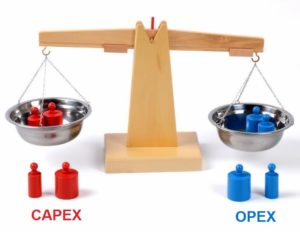In modern refinery investments, CAPEX in process optimization and the acquisition of costly process analytical and process optimization systems are nowadays not anymore based on “nice to have it” but on “Do we really need it”.
Importance of Feasibility Studies
A deep-going survey and feasibility study is in many cases required to understand the CAPEX and efficiency of improved process analytical and process optimization projects. In addition to that also OPEX plays today an important role in many petroleum and petrochemical industrial plants to reduce the cost of manpower and other operational costs.
 As a supplier of online process analyzers and overall turn-key projects, Modcon Systems’ responsibility goes far beyond the selling of analyzers only. Especially in those cases where high investment in the purchase and maintenance of instrumentation are involved, Modcon Systems offers its customer feasibility studies that allow the customer to decide whether or not investing in a process analyzer and process optimization system is beneficial from the CAPEX and an OPEX point of view alike, and profitable balance between them.
As a supplier of online process analyzers and overall turn-key projects, Modcon Systems’ responsibility goes far beyond the selling of analyzers only. Especially in those cases where high investment in the purchase and maintenance of instrumentation are involved, Modcon Systems offers its customer feasibility studies that allow the customer to decide whether or not investing in a process analyzer and process optimization system is beneficial from the CAPEX and an OPEX point of view alike, and profitable balance between them.
Modcon Systems’ feasibility studies cover a broad variety of different subjects in the refinery and petrochemical industries. The scope of the study is determined in cooperation with the customers and in accordance with the targets of the requested recommendations for process optimization resulting from the study.
Components of Feasibility Studies
Feasibility studies include:
- A technological review of the current situation in the process unit.
- Defining the variables that influence the increase of the production process and the product quality.
- Determination of the properties that mostly influence the process efficiency.
- Determination of parameters that should be controlled online, and where laboratory analyses are too time-consuming for process optimization.
- Process optimization by utilization of online process analytical results, transferred to the DCS.
- Defining the basis of design, and overall project summary from a technological point of view.
- Budget estimation – Direct and indirect investments to be made for the implementation of the product design.
- Procurement, contracting, project management, hazard analysis, and execution summary.
- CAPEX and OPEX calculation.
- Capital investment return calculation.
Benefits of Effective Feasibility Studies
Effective feasibility studies and implementation of its recommendations improve the profitability of the overall plant, by increased process control and process optimization, especially when integrated with APC, resulting in:
- Increased the production capacity of the most demanded products
- Increased product quality
- Reduced of giveaways
- Increased energy efficiency
- Increased labor efficiency
- Reduced maintenance
- Optimized CAPEX, OPEX, and return on investment of the optimization project






